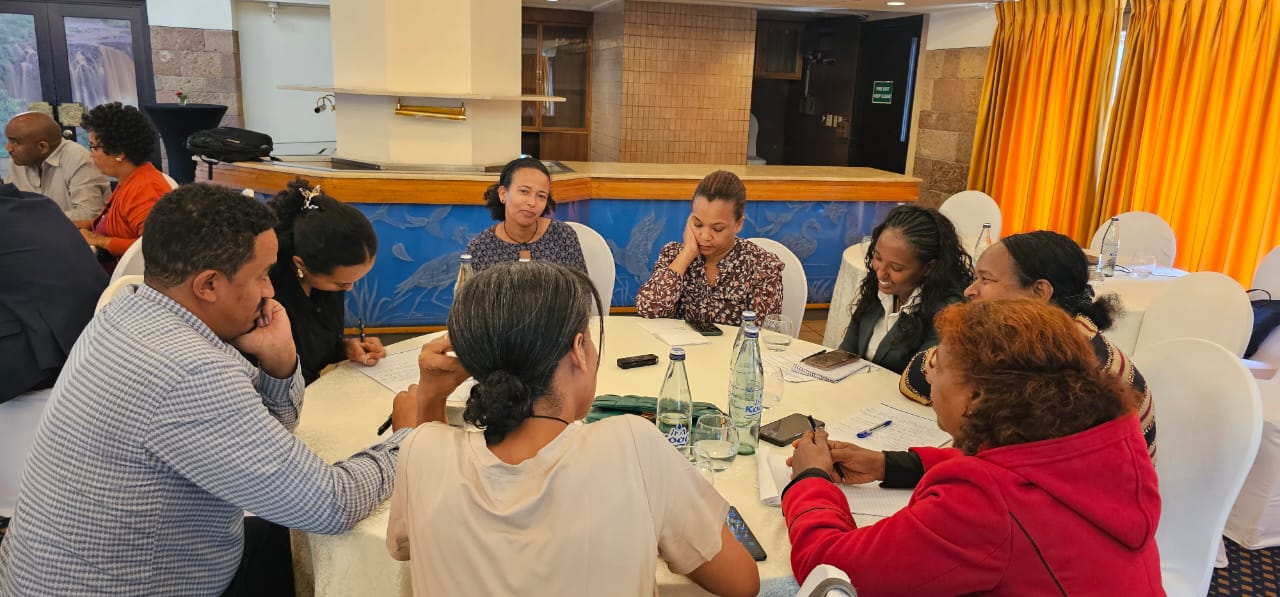FSS launches INCLUDE project to establish APD-Ethiopia, holds inception workshop
FSS, in collaboration with the INCLUDE platform, has launched a new project titled “Productive Employment and Decent Work for Youth and Women in the Textile and Garment Manufacturing Sector in Ethiopia.” This initiative will run from February 2024 to January 2026.
This collaborative initiative was launched with a stakeholder workshop organized at the Hilton on Thursday, June 20,2024, to introduce and connect key stakeholders in the issue and foster meaningful discussions.
The inception workshop began with a welcoming speech by Dr. Yeraswork Admassie, Executive Director of FSS, who provided a brief overview of FSS, an independent, non-profit policy think tank in Ethiopia. He also outlined the main goals of the new project, in which he serves as the APD-Lead. This was followed by three brief presentations.
The first presentation was delivered by Dr. Assefa Admassie, a member of the INCLUDE platform and the project’s lead researcher. He discussed the purpose and mission of establishing APD-Ethiopia, introducing FSS as the leading organization in this effort. Dr. Assefa detailed the origins, history, and scope of work of the INCLUDE platform, emphasizing that its interventions occur through various modalities, with a focus on African policy dialogues for this project. He thanked the participants and stressed that the project’s success relies on the collaborative efforts of all stakeholders.
Dr. Assefa explained that the principal objective of the project is to establish the African Policy Dialogue in Ethiopia (APD-Ethiopia). This initiative aims to bridge the gap between knowledge generation and policy-making regarding decent work for youth and women in Ethiopia’s textile and garment sector.
Next, Dr. Degnet Abebaw, the INCLUDE Lead Researcher, presented the inception paper, which provided initial insights into policy-relevant indicators on employment conditions and job quality for women and youth in the textile and garment manufacturing sector. He discussed unemployment trends by sex and age, investment attractions, sector achievements, labor challenges, project objectives, and expected outcomes.
Then a third presentation by Dr. Ezana Amdework, the INCLUDE Project Coordinator and MEL Lead, offered background information to stimulate participant discussion. He covered the decent work deficit and its features, the current trends in the Ethiopian labor market, and the national and international policies that govern it.
After a brief coffee break, the workshop resumed with breakout sessions where participants formed groups for animated and detailed roundtable discussions on the decent work deficit, urgent policy issues, and strategies for ongoing engagement and collaboration to achieve project objectives. The discussions were guided by pre-designed points and questions, and produced some very valuable insights and perspectives.
After a lunch break, the plenary session featured a live moderated discussion and Q&A, during which valuable comments and suggestions were made regarding the project objectives and future collaboration.
The workshop brought together around 25 individuals drawn from Government Institutions and Non-state actors including the Federal House of Parliament, Confederation of Ethiopian Trade Unions (CETU), Federation Trade Unions of Ethiopian Textile and Garment, Leather Trade Unions Federation, Federation of Textile Manufacturers, Federation, and Confederation of Textile Manufacturers Association, and the media.
As a collaborative effort intended to create knowledge and facilitate uptake to establish the APD-Ethiopia, the two-year project will continue to create other venues and platforms for stakeholder discussion and collaboration.
Background
Over the past two decades, Ethiopia’s textile and garment sub-sectors have significantly contributed to GDP growth and formal employment, particularly for youth and women. Despite this progress, policy, implementation, and knowledge gaps persist, potentially hindering productive employment and decent work opportunities. Acknowledging the growing focus on labor policies in the country, the evidence and insights generated by the project through research and ongoing engagement with policymakers will be crucial in bridging these gaps and improving policy implementation.

